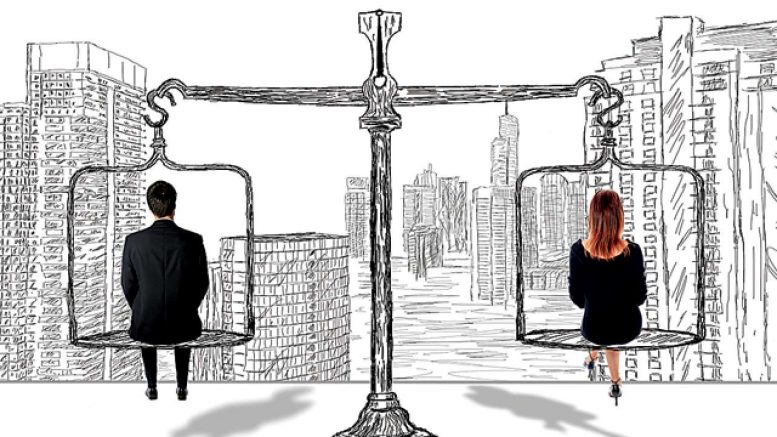It is a matter of great shame and concern that diversity in many organisations still remains a check-in box activity around hiring of women. Agreed that we now have more conversations around this topic. Yes, there is a movement towards hiring. However, gender parity discussions need to move beyond hiring to include issues related to opportunities, education, and health as well. A lot still needs to be done.
Within the various discussions happening under the broad umbrella of diversity, equity and inclusion (DEI), one sensitive piece that is often brushed under the carpet is pay disparity.
The ‘Women and Men in India 2022’ reported released by National Statistical Office (NSO) is an eye opener when it comes to wage divide between men and women. One would assume that Kerala being amongst the most literate States of the country would have pay parity. However, you would be shocked to learn that while it has the highest daily wage rates for rural males, it also has the widest gender gap in wages for similar work between men and women in both rural and urban regions.
| Average daily wage earned by casual workers in non-public works (INR)* | ||||
| Rural | Urban | |||
| Male | Female | Male | Female | |
| Kerala | 842 | 434 | 846 | 404 |
*Kerala tops wage divide between men & women, Atul Thakur, TOI, Mumbai, March 19, 2023.
It would be natural to look up to bodies like the UN & ILO to uphold equal labor wages across gender. Yet, an advertisement for an internship post in Gender Equality at UNESCO made it clear that they will not remunerate interns in any way. Ironic, isn’t it? Gender equality just died a thousand deaths. When talent is not recognised and valued, it is a sure way to kill any discussion around DEI.
The next check-in box is the setting up of the creche or childcare services within office premises. While this is an imperative need and it can support a lot of working women, I was surprised to see low attendance and acceptance of it in one of the organisations that I had worked at.
On interacting with a few women colleagues whom I knew, I was shocked to find that the reason was very basic. The timings of the childcare services in the surrounding area/office did not work for them. Second, some of the schools to which their children went did not offer a pickup/drop service near the creche. They were therefore left in a conundrum. A deeper probe told me that all the decisions related to the creche were made by the management or HR and there was hardly any female employee/a mother who was invited and involved in those discussions.
What can we do?
Communicators and PR agencies play a critical role in supporting, shaping, and reshaping the culture of an organisation. Needless to say, the DEI change and agenda is a journey and not a one-time activity. It requires involvement, commitment, and resources to bring about an attitudinal shift.
As important agents of change we owe it to our organisations, our colleagues and even to ourselves to bring attention to issues that widen the gender gap and suggest alternatives or new measures to bridge this divide.
Here are some of the things we can all do to support an equal, diverse, and inclusive workforce:
#Speak up
Use every opportunity, every meeting, every platform to speak up and raise relevant concerns
#Form a group
Bring together diverse group of like-minded colleagues, including leadership to lead the cause
#Create that vision
Together, create that vision that fosters and supports inclusivity
#Communicate this vision
Right up our alley – plan, strategise and communicate the vision so that everyone is aligned and moves in tandem
#Support change
When people want to change, work with them on it. Support them. Empower them to own the change
#Celebrate every win
We don’t have to wait for big victories. Every win is a reason to celebrate. It takes us closer to achieving the vision
#Review the wins periodically
Meet and review all the wins. What does the big picture look like now? How far are we from our goal post? What have we achieved so far?
#Build in the change
Take the above wins and collaborate with HR and the management to co-create and build in a new and different culture.
Driving the DEI agenda is not a single person’s job. We all need to champion it. As communicators, we can play a pivotal role in bringing in the best practices to create an inclusive world.
The views and opinions published here belong to the author and do not necessarily reflect the views and opinions of the publisher.



Be the first to comment on "Bridging the divide"